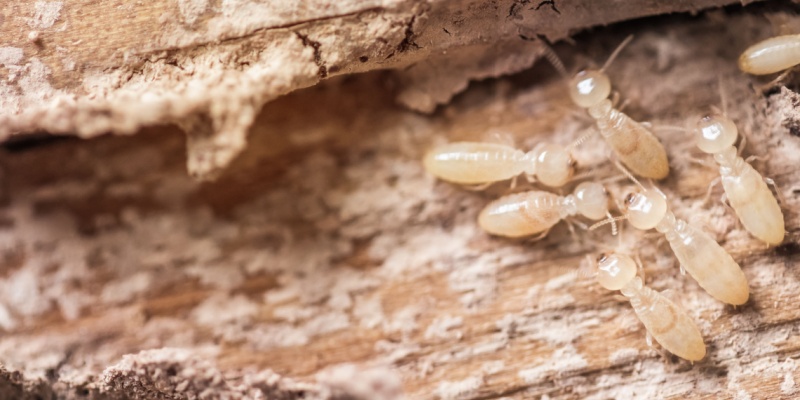Termites can cause significant damage to your home if left unchecked. Determining when to call professional termite exterminators is crucial to protecting your property. Here’s a guide to help you decide if it’s time to bring in the experts:
Signs of a Termite Infestation
Early detection of a termite infestation can save you from extensive damage. Here are some common signs that indicate you may have a termite problem:
- Discarded Wings: Termites shed their wings after swarming. Finding these wings near windowsills, doorways, or other entry points is a sign of an active infestation.
- Frass (Termite Droppings): Termite droppings look like small pellets or sawdust. Piles of frass around wooden structures suggest termite activity.
- Mud Tubes: Subterranean termites build mud tubes for protection and moisture. These tubes can be found on foundations, walls, and crawl spaces.
- Hollow-Sounding Wood: If wood sounds hollow or has a papery texture when tapped, it could be due to termite damage.
- Blistered or Buckling Wood: Termite damage can cause wood to blister or buckle, resembling water damage.
Assessing the Extent of the Problem
Once you’ve identified signs of a termite infestation, assess the severity of the problem:
- Localized Damage: Small, localized areas of damage may be manageable with DIY treatments. However, professional inspection is still recommended to ensure the infestation is contained.
- Widespread Damage: If damage is extensive or spread across multiple areas of your home, professional intervention is necessary.
DIY Methods vs. Professional Exterminators
While DIY methods can sometimes address minor infestations, they often fall short for more significant problems. Here’s a comparison:
- DIY Methods:
- Boric Acid: Effective for killing termites on contact but may not reach the entire infestation.
- Essential Oils: Can repel or kill termites in localized areas but not suitable for severe infestations.
- Termite Baits: Slow-acting and may not eliminate the entire colony.
- Diatomaceous Earth: Kills termites by dehydration but may not penetrate deeply enough.
- Professional Exterminators:
- Accurate Identification: Professionals can identify the type and extent of the infestation.
- Advanced Treatments: Access to effective treatments like fumigation, heat treatments, and specialized termiticides.
- Comprehensive Approach: Ensures the entire colony is eradicated, reducing the risk of reinfestation.
- Ongoing Monitoring: Professional monitoring helps detect new activity early.
When to Call Professional Exterminators
Consider calling professional termite exterminators if you encounter any of the following situations:
- Extensive Damage: Visible structural damage or widespread infestation requires professional treatment.
- Recurring Problems: If termites return after DIY treatments, professional help is needed to eliminate the colony.
- Uncertainty: If you’re unsure about the extent of the infestation or how to treat it, a professional inspection can provide clarity.
- Time and Safety Concerns: Handling chemicals and treatments can pose health risks. Professionals are trained to use these substances safely and effectively.
Benefits of Professional Termite Control
Hiring professional termite exterminators offers several advantages:
- Effective Treatments: Professionals use advanced treatments that are more effective than DIY methods.
- Time Savings: Professionals can quickly and efficiently address infestations, saving you time and effort.
- Peace of Mind: Many pest control companies offer warranties and guarantees, ensuring the problem is resolved.
Preventative Measures
Whether you decide to tackle the problem on your own or hire professionals, taking preventative measures is essential to protect your home from future infestations:
- Regular Inspections: Schedule annual inspections with a termite control specialist.
- Moisture Control: Fix leaks, ensure proper drainage, and reduce humidity levels in your home.
- Wood Treatment: Treat exposed wood with termiticides to create a protective barrier.
- Seal Cracks and Gaps: Inspect and seal cracks and gaps around windows, doors, and foundations.
- Proper Ventilation: Ensure attics, crawl spaces, and basements are well-ventilated.
Determining when to call professional termite exterminators can be crucial for protecting your home. If you notice signs of an infestation, assess the severity and consider the limitations of DIY methods. For extensive or recurring problems, professional help is often necessary. By combining preventative measures with professional treatment, you can effectively manage and prevent termite infestations.

